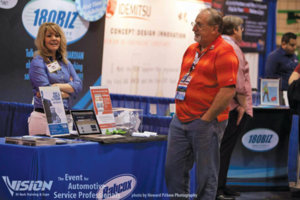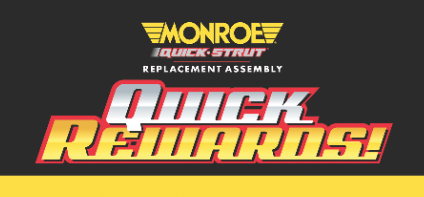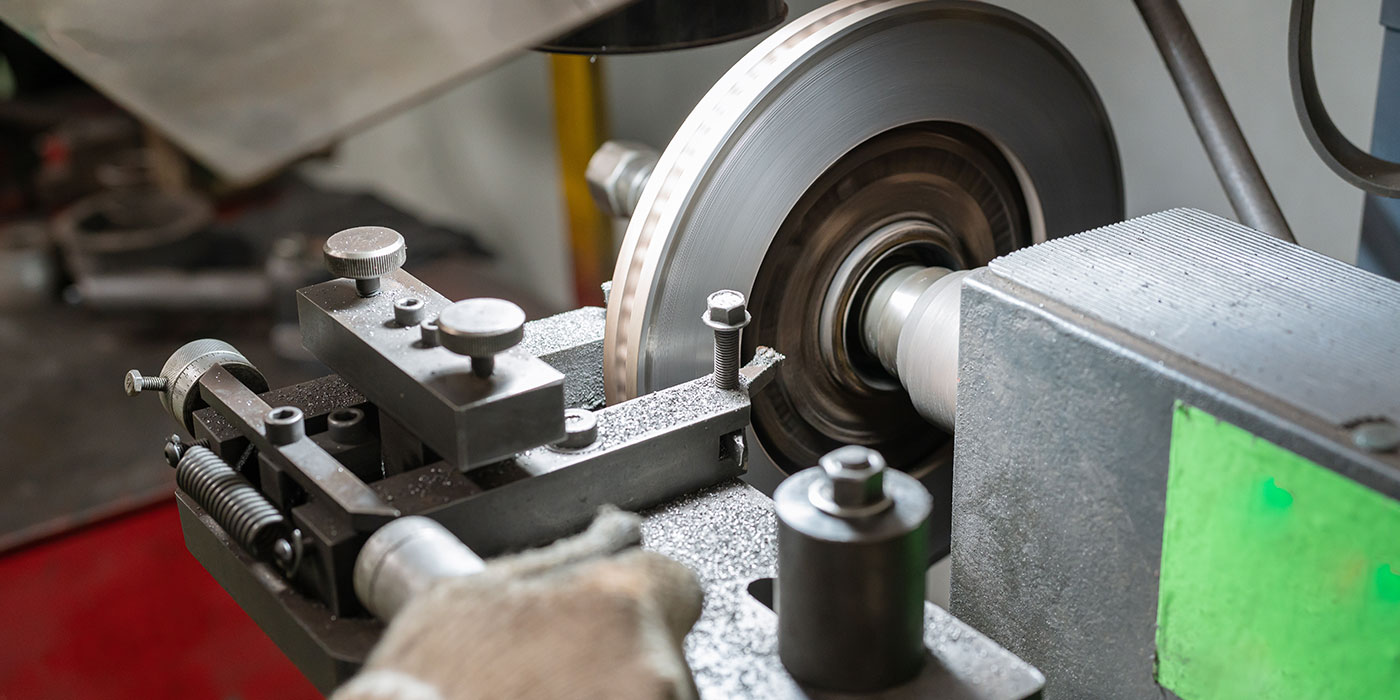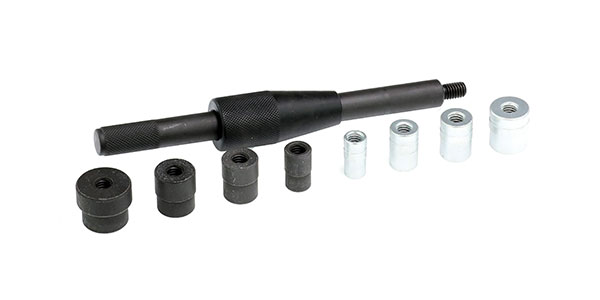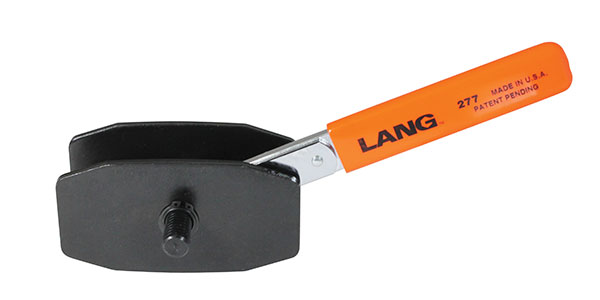 What happened at the shop is sketchy at best. Articles about the incident on the internet contain somewhat contradictory information when compared to each other. But, the details of the accident and the forensics inspection of the van are all in agreement.
What happened at the shop is sketchy at best. Articles about the incident on the internet contain somewhat contradictory information when compared to each other. But, the details of the accident and the forensics inspection of the van are all in agreement.
The brake fluid cap was missing, allegedly allowing the master cylinder reservoir to drain out. A cracked brake shoe and a seized wheel cylinder were also found. Brake dust on the rear shoes had also been noted, and is being used by forensics investigators as a suggestion that the drums had never been removed.
The van, used as a special needs school bus, was traveling down a hill when the driver stated that the brake pedal went to the floor and she had no brakes. The van struck a tree injuring children in the vehicle, injuring the driver, and killing a 53 year old teacher’s aid who suffered abdominal injuries from the crash. A trail of brake fluid had been discovered at the crash leading up to the top of the hill.
When we read a headline in the paper of something tragic happening, as people who do not know the people directly involved personally, it’s easy to think “that’s terrible” and move on. But thinking on it a little more, the reality sinks in deeper. She was only 53 and lost her life. It’s likely that a husband lost his wife, some lost their mother, and someone lost their grandmother … and maybe a sister … an aunt … a daughter … the list goes on. The school lost a special needs teacher of 25 years, and numerous children lost a teacher who they looked up to. But it doesn’t stop there.
A repair shop has suffered unbearable damage to their reputation, as well a mechanic who may have (for all we know) performed inspections and repairs with top notch quality on every other vehicle. Years of “doing it right” now erased by the extremity of the results from one job.
The driver of the van might also be haunted for the rest of her life with thoughts of what could have been done differently; applying the parking brake? Slamming it in park? Steering around danger?
What about any physiological trauma to the children? What about the owners of the van, A-1 van service, who commands the up-keep on the van? What about the school system allowing A-1 to use a common passenger van as a school bus? Is there a silent party here who decided to play armature mechanic after leaving the shop, and are now quietly dealing with their own demons?
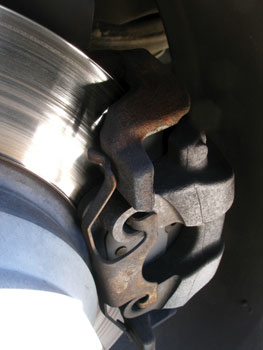 The repercussions of this horrible accident reach farther than the names listed in any of the articles. Now, what has happened has happened and no one can change any of that. All the rest of us can do is look at the situation and create hypothetically based scenarios to try and decide how this might happen in our own shops, then take corrective actions to prevent it from happening again.
The repercussions of this horrible accident reach farther than the names listed in any of the articles. Now, what has happened has happened and no one can change any of that. All the rest of us can do is look at the situation and create hypothetically based scenarios to try and decide how this might happen in our own shops, then take corrective actions to prevent it from happening again.
From the forensics reports, and the tech’s own words when he said he never raised the hood, it is probable that only a partial inspection of the brakes occurred. How could this happen? Maybe he didn’t feel the need for a complete inspection. As techs, our line of communication with the customer is often only what we read on the repair order. This is were my questions were left unanswered.
• Were the driver’s complaints accurately logged onto the RO? Did it just read “check brakes” on the RO?
• Was the technician being rushed with too high of a work load?
• Does the shop charge for basic brake inspection at all? Or is it a free inspection?
• Does the shop force the tech to write down pad and lining thickness during a free inspection (further increasing liability)?
• Does the shop pay the technician at a comparable rate for his area, reducing the chances of rush-jobs? Did the tech feel he was going to miss out on a paying job while doing a free brake inspection?
• Does the shop have a set of rules and procedures in place for routine inspections like brakes?
• Does the management regulate and enforce these procedures?
There is no excuse for a substandard repair or inspection, but there are a multitude of reasons why it can occur. The ones I just listed have occurred in nearly every shop I have been in. I’ve seen it first hand.
In shops where the management/owners where disconnected from the technicians (especially dealerships) it was more frequent. I, personally, have always hated the free brake inspection because it makes the technician end up paying for the inspection process (by donating his labor time and tools). A seasoned tech also knows he can face lug nut problems for free. A free brake inspection sets a breeding ground for missed brake problems. Couple that with management that does not closely regulate employees, plus a lack of communication from the service writer, and there exists a formula for disaster.
So why did I pick on the dealer a minute ago? Because they are usually so large that all of the pieces are present. The customer talks to the service writer. In most dealer settings, he does not talk the owner, manager or the technician. Instead, the customer speaks with someone whose day is filled with the mundane task of writing up a ticket for what the customer says they want. This can be boring and tiring. So mundane that if the service advisor is not motivated, he/she can easily reduce themselves to nothing more than an order taker at a fast food restaurant. The service advisor needs to ask questions, and also know what type of questions to ask. If the customer says that they want something checked on their car, the service advisor must ask what symptoms the vehicle is exhibiting.
Customer: “I need my brakes checked.”
Service write: “Are the brakes giving you a problem?”
Sometimes, guiding questions may be needed such as: Are they shaking when you apply the brake?; Are any warning lights coming on?; Are there any noises?; or, Are you experiencing a low pedal or any pulling?
It is critical that this information is placed onto the ticket for the technician to read. Not just “check brakes.” The technician now is expected to do a thorough inspection. In the case of brakes, that means test driving it and using a scan tool to code all modules on the vehicle, as well as monitor the wheel speed sensors for accuracy.
Does that happen in your shop? I’ll bet about 90% of you just said “no” to the scan tool and said “sometimes” on the test drive part. How many are testing the brake fluid for copper and moisture? How many pull every wheel? How many check to see that the tire sizes all match and are of the size that the ABS module is expecting?
A thorough brake inspection takes time. Nowadays, it is far more high-tech due to ABS, Traction control and roll stability control (all arguably part of the brake system) than 20 years ago. Now, the technician must accurately record any findings, friction measurements, rotor measurements, fluid condition, hose and line conditions, codes and data PIDs.
Now it’s back to the service advisor. He must not only know what the vehicle requires for repair, he also has to know why. Not just “it’s bad,” rather why “it’s bad.” He also must be aware of the potential consequences to the vehicle and driver if they decline the repairs. That is, honest likelihoods not to scare, but to advise. In some cases, it may be proper to recommend a vehicle be towed away instead of driven should the customer decline repairs. We can’t make them fix it, but we can do everything in our power to make sure they understand the potentially severe consequences of continuing to drive it.
We can also help them prioritize repairs should there be more than one needed by the vehicle. To us, it might seem like a no-brainer to fix brakes before doing a timing belt. But to the less mechanically inclined public, that isn’t always so obvious. If a service advisor does not “advise” a customer … then what are they?
Management must lay down clear expectations of what they will call a “brake inspection.” Is it just going to be friction inspection? Or will it be more? Do you have an inspection form to help create uniformity? Do you tour the shop continuously going from bay to bay keeping tabs on each vehicle so that you, at the very least, can answer customer’s progress questions? Or do you just bark orders from behind a desk or a couple of times a month in a shop meeting?
If you can’t go from bay to bay continuously, do you at least have a shop foreman who does? Can you, or your shop foreman, actually do the work needed to the vehicle if the technician needs help? I don’t mean on a 25-year-old vehicle either. I’m talking about that 2006 Ford Five Hundred out there with Traction control, ABS, Electronic Throttle Control (that makes throttle and shift decisions partly based on information from the ABS system), and that sneaky reverse rotation rear disk caliper.
Are you paying the tech properly? Really? What if a vehicle gets a brake inspection and nothing is found wrong or the customer declines the repairs? Then what? Are you expecting the tech to pull the wheels off to check the brakes for free during an oil change?
There are many steps between point A and point Z. There are many chances to “drop the ball.” For the time being, prosecutors are blaming the technician for the fatal accident. Personally, I believe the problem to be much larger and less tangible. I believe the problem really stemmed from a lack of uniformity in that journey from point A to Z. Think of a repair shop as a musical band. All of the members know their rules and they know the music. They know this because it had been rehearsed over and over again.
The leader will have some lyrics and melody worked out in a rough frame work. To refine the music, other members may offer melodies or suggest lyric changes. The leader is still the leader, but is not the only artist in the group. The best bands work together to refine the music.
When they play for their audience, they know what they are doing, both as a group and as individuals. The singer often leads by sometimes changing a word here or there depending on the verse to remind the other band members where they are in the song.
Not only does the leader prompt the other members, the other members provide feedback to the leader and each via their instruments. Not only do they help each other out throughout the entire song, they all know their part perfectly and could continue to play if any one member was missing. Even a grand orchestra whose conductor failed to show up, could play the piece. It might not sound quite the same, but the show could still go on.
Our customers are our audience, and the management is not the only “artist” in the band. It takes all of us knowing our parts, not only as individuals, but also as a team, to refine the operation. Let’s play together. Let’s be organized. Let’s know our part and what is expected. Let’s do our part to make our audience vast. And by all means, let’s make sure they are around for a repeat performance! n


